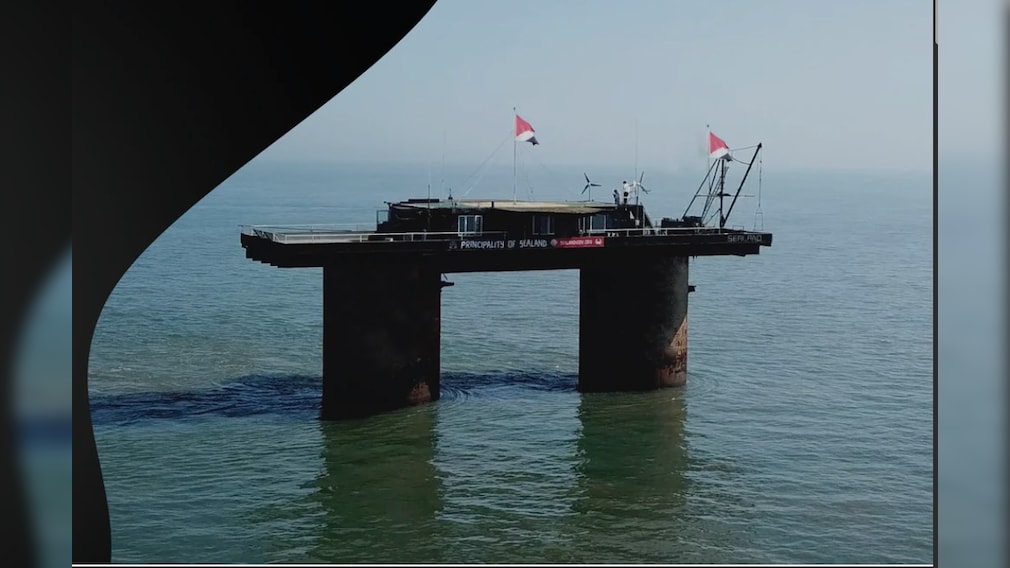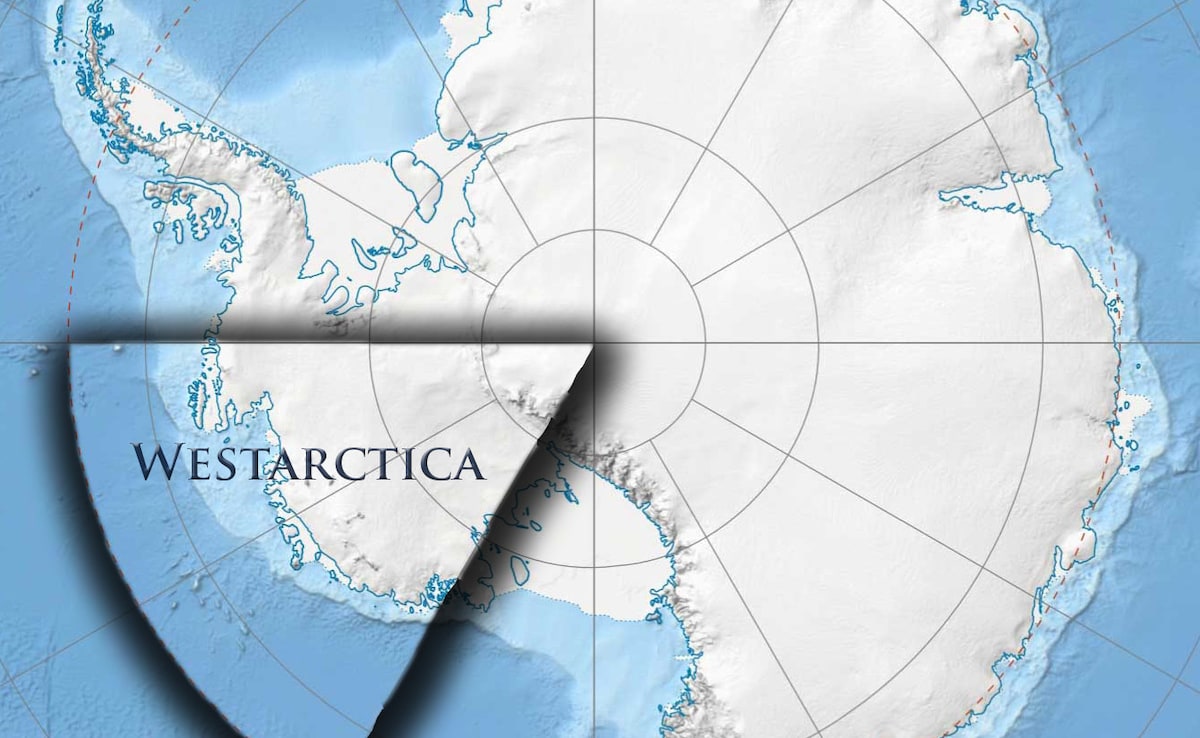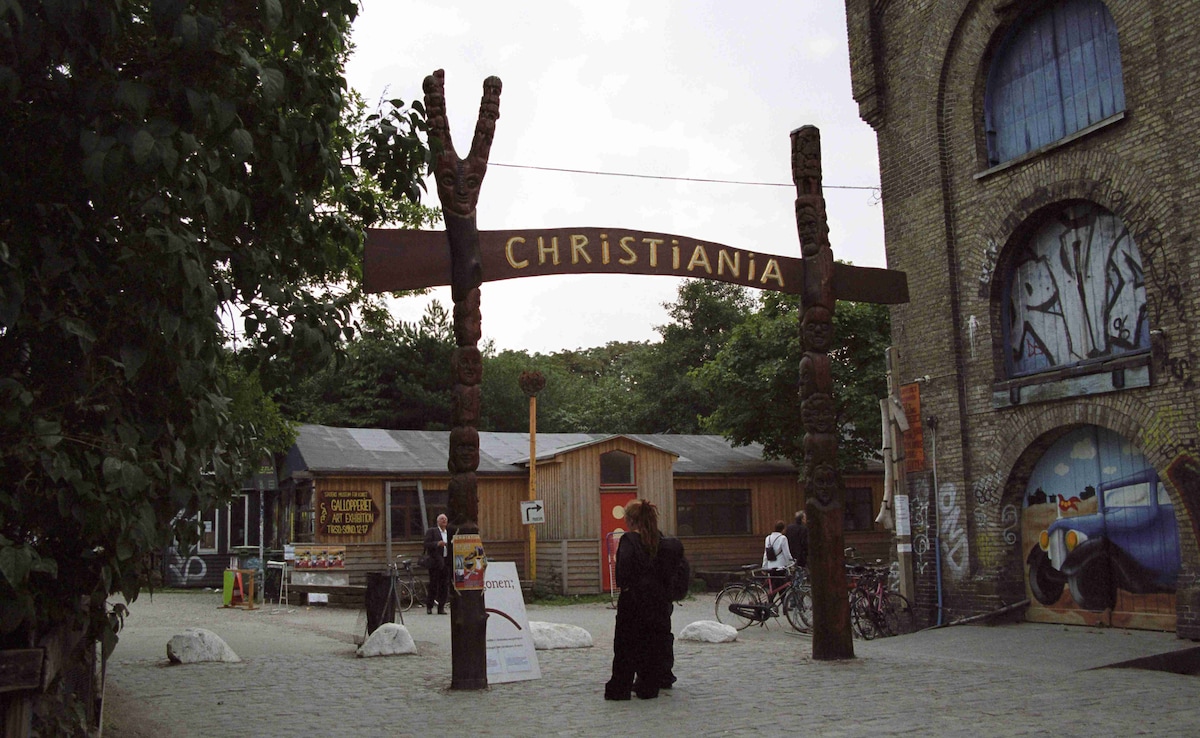From A Fake Embassy In Ghaziabad To The Weird World Of Micronations
A micronation is an aspirant state, a wedge of unclaimed land or an abandoned structure, or even a disputed piece of farmland that claims sovereignty.

Delhi Police shut down an embassy this week. The Embassy of the Grand Duchy of Westarctica.
Only it wasn't the Grand Duchy's embassy. It was a scam run by a man from Ghaziabad, who rented a bungalow, padded the scenery with high-end cars and photographed pictures of himself with world leaders, including Prime Minister Narendra Modi, to con people out of lakhs.
It was a fake embassy, yes.
But, amazingly, the Grand Duchy of Westarctica is not. It is a 'country', a tract of land in western Antarctica that is around 620,000 square miles large and has a 'royal head of state' - His Royal Highness, the Grand Duke Travis - a flag, currency (the Ice Mark), and over 2,500 'citizens'.
Only it is not. Because no sovereign nation in the world recognises it.
Confused? Welcome to the weird and entertaining world of micronations.
What is a micronation?
It is an aspirant state, a wedge of unclaimed land or an abandoned structure, or even a disputed field of wheat (yes, that happened), that claims sovereignty and political independence, but lacks the force majeure to enforce that demand under international law.
These are not the same as microstates - such as the Vatican City and Liechtenstein - which are recognised sovereign nations despite their small size.

The location of the Grand Duchy of Westarctica. Source: Wikipedia
So what's the point?
Well... that's a question, isn't it?
Many are created as a joke.
There is the Republic of Le Saugeais, for example, a collection of 11 villages between France and Switzerland 'born' in 1947 after a joke between a hotel owner and a French official.
Others may have been formed as a form of protest, however bizarre.
In Florida in 1982, the Mayor of the island city of Key West declared the Conch Republic and 'seceded from the United States' to highlight the lack of development of the region.
Another example is Freetown Christania in Copenhagen, an 'anarchist commune' of around 1,000 people built - intentionally - over a former military base. The main street is called Pusher and, unsurprisingly, was famous for the open but illegal trade in cannabis, right until last year.

The entrance to Freetown Christania. Photo: Bruno Jargot - Uploaded by the author, CC BY-SA 1.0,
And then there are yet more.
The Principality of Sealand is an offshore platform in the North Sea that was used by British military during World War II. Taken over by Paddy Roy Bates, a former soldier, Sealand is now, perhaps, the most famous micronation, and even has 'visas' for 'tourists' who want to visit.
There is the Republic of Minerva - an artificial island built over disputed coral reefs lying between the Pacific island nations of Fiji and Tonga. And there is Liberland - a seven square km parcel of forested and uninhabited land that is part of Serbia and Croatia's border argument.
For the artist in you, there is the Royal Republic of Ladonia that was created in 1986 because local authorities in southern Sweden's Kullaberg said two sculptures were illegally built.
Ladonia is now ruled by Her Majesty the Queen, Carolyn.

Queen Carolyn of the Royal Republic of Ladonia. Photo: ladonia.org/monarchy/queen
Micronations in India?
Yes! A quick search of the internet says there are at least five.
These are the Micronation of the Avigation Vision, the Dharmic Union, the Kingdom of Indradhanush, the Republic of Lowenia, and Vishwamitra. The latter three are located within the city of Bengaluru.
But what, really, is a micronation?
Anything you want it to be, really.
A friendly 'how to' guide shared by the President of the Republic of Molossia in the American state of Nevada has quite a few details, including the five different kinds.
A 'soverign nation' that has a formal system of government, passports and border control, and membership in an international organisation. These are usually built around physical territories.
A 'ship under flag of convenience', which would be like Sealand.
A third kind is created using the laws of the country in whose territory the micronation lies.
The fourth and fifth are a 'model country', which is usually a website or an online presence, and establishing a 'nation' in a remote area. Liberland is an example of the latter.
Now the legal (and boring) bit.
A micronation is not 'real'. None has ever been accepted by an established nation.
But that does not mean their creators/founders are not serious about their 'countries'.
For example, in 2000 Molossia founded and hosted the 'Intermicronational Olympic Games' that coincideed with the Summer Olympics. The list of events included online games like chess and checkers (hosted unofficially on the Yahoo platform) and assorted track events.
Molossia President Kevin Baugh and his son Mark were the stars, winning gold medals in the 100 metre dash and frisbee throw, and silvers in 'the tennis ball throw', chess, and checkers.
We're still waiting for the next Intermicronational Olympic Games.
But last year the Jewish Bolshevist Republic of Schykille, in Pennsylvania in the US, hosted a world football tournament that featured 24 teams, including Sealand.
Want to start your own micronation?
This sounds fun.
You could, really. In the words of Mr Baugh, the President of Molossia, you could start by simply claiming land. "... it doesn't need to be solely yours. Claim land that is publicly owned, like a local park, a nature reserve, that sort of thing. Go there, plant your flag, and claim the land for your nation..."
Then all you need is a flag, a national anthem, and other 'national' symbols. Congratulations. Just beware of unscrupulous men and women pretending to be your diplomatic envoys!
NDTV is now available on WhatsApp channels. Click on the link to get all the latest updates from NDTV on your chat.
-
Opinion | Congress's 'Jamaat' Experiment In Kerala Can Backfire Badly. But Does It Care?
The Jamaat has always been sort of a political pariah in the state. Why, then, is the Congress warming up to it?
-
Opinion | A BAFTA Award, Straight From The Ashes Of Manipur's Moreh
The shooting for 'Boong' in Moreh wrapped up barely a week before violence engulfed the township. Many who stood behind and before the camera are today internally displaced.
-
Inside Mumbai's Worsening Air Pollution Crisis
Mumbai Air Pollution: Mumbai 's overall Air Quality Index (AQI) on February 25 remained in the poor to unhealthy range.
-
Opinion | What's In An 'M'? The Empty Performance of Renaming Kerala
The 'm' at the end of Keralam will not stop the sea from encroaching, it will not fill the coffers of the state treasury, and it will not provide a bed in a super-specialty hospital.
-
6,800 km From Epstein Island, His Paris Lair Surfaces With Disturbing Details
The photographs show an 18-room residence saturated in red, orange and pink tones. Walls are covered with framed images of naked or semi-naked young women.
-
Opinion | How Israel Once Defied Its Biggest Ally To Secretly Help India Against Pakistan
During the 1971 India-Pakistan war, Israel secretly supplied India with critical military equipment despite the absence of formal diplomatic ties. Then came an 'offer' against Pakistan in the 1980s.
-
Opinion | If You Don't Care About Taj Mahal's Architect, Why Cry Over Lutyens?
The parallel, if one has to be drawn, is not with Shah Jahan and the Taj. It is with the architect of the Taj, and most of us don't know his name either. Why, then, should we bother too much with a British architect?
-
Opinion | Inside Trump's Dirty Games With South Korea And Japan - And Why India Must Care
The US President's dealings with his two allies have become cautionary tales highlighting the difficulty of negotiating with Trump's America.
-
From "Jai Shree Ram" To "Jai Maa Kali": BJP's Cultural Rebranding In Bengal
The BJP's strategy seems to be to acknowledge that the intricate dance of politics, pre-Independence history and culture, when done with sincerity and respect, can unite rather than divide
-
News Updates
-
Featured
-
More Links
-
Follow Us On










